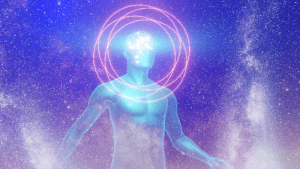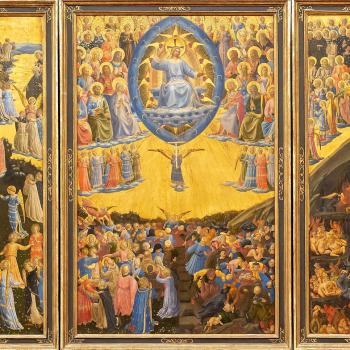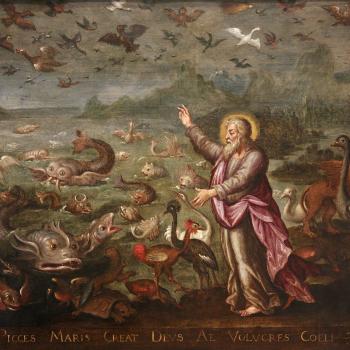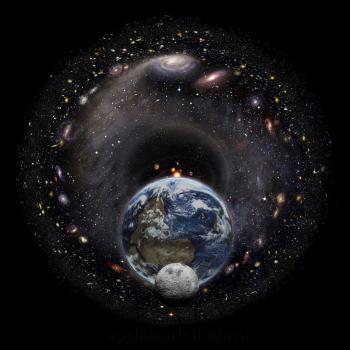
No matter how corrupted it has become, no matter how defiled it has become, everything which exists will always possess some good within it. This is not to say it will be easy for us to find that good, for obviously, more often than not, it can be extremely difficult. This is because that good is buried deep within, hidden from view, encased in all kinds of defilement. And yet, as existence itself is good, we know that nothing which exists can be entirely lacking of that good. This is true, not only for individual things, but also for goods which are collected together under some sort of organized unity, a unity which itself is a good which makes such a unity more than the sum of its parts (and so possesses a good of its own). All the individual body parts within a human body are good in and of themselves, which is why many of them can be used in other bodies, because that good is easily communicable with other bodies, and yet the human body as a whole is more than the sum of its organs, as the person involved has their own good independent from their parts. Sadly, anything which exists as in a composite form has, because of that composition, many more ways that they can be defiled than something which is simple and without parts. That means, just as a composite being has a good beyond the sum of its parts, so that being can also produce greater and greater evil, which unites in a way beyond the sum of its parts as well. This is why it is much more difficult for something which is composite in nature to be restored to its previous condition than something which is simple, for it has that much more restoration needed to return to its original integral goodness. What each particular thing, whether or not it is a composite being, establishes for itself in its existence will one day be revealed. While whatever evil and corruption it has produced will be revealed, the eschaton will do much more than that, it will make the good known, it will uncover it, cleansing it, as it were, from all the defilement which still covered it. Everything, therefore, will undergo purification as it engages the eschaton. The more defiled a thing is, the more purification it will have to go through; while it can be said to suffer a kind of loss because of this, in the end, the good of all things will be made known and the good will be all in all. Thus, what Paul talks about in regards each human person is true, also, for all things:
Now if any one builds on the foundation with gold, silver, precious stones, wood, hay, straw — each man’s work will become manifest; for the Day will disclose it, because it will be revealed with fire, and the fire will test what sort of work each one has done. If the work which any man has built on the foundation survives, he will receive a reward. If any man’s work is burned up, he will suffer loss, though he himself will be saved, but only as through fire (1 Cor. 3:12-15 RSV).
There is a great variety of beings in the world, each with different potentialities, each with its own particular, unique kind of good. But in the world, that good is hard to discern because it has been obscured by all kinds of defilement, some of which, it might have produced itself, and some of which might come from the observer whose own defilement obscures their vision of creation. That is, our own sin interferes with our engagement of the world and our observation of the good within it. We might see or discern it in part, but mostly what we can see is an external form of the good which has all kinds of defilement on top of it; sometimes it keeps its basic form, so we find it easier to discern the good, but sometimes the corruption covers it so much that even its basic form is obscured. However, in the eschatological judgment, all that good will be revealed, as the defilement will be cleared away from all to show the good which remains. This is true for every good, including the good found in the integral unity of creation itself, for creation forms its own composite unity with its own good. Everything in creation is interconnected and interdependent. It’s integral unity is greater than the sum of its parts, just like with the unity found in any composite being. This integral unity, though harmed by the corruption and defilement of sin, remains, and so its good remains. And just like everything else, it will be cleansed from all its defilements so as to be made new; the new heaven and the new earth which we are told will come must be understood as a representation of how all things will be cleansed and made new in the eschaton, not that everything which exists will come to be annihilated and replaced by a doppelganger. Thus, we should understand, the eschatological fire does not come to destroy, but to purify and reveal the good which was always there, and it will reveal that good, not just in all the parts of creation, but with creation as a whole, showing that creation itself has its own integral unity, and in that integral unity, its own good.
Not only will the eschaton reveal what everything and everyone has made of themselves, it will take that good and hand it over to eternity, making it eternal, revealing, likewise, that what we do in time is important because it will have eternal significance. We must not think our temporal lives are unimportant just because they will come to an end. But, as the eschaton has become immanent in time (thanks to the incarnation), we can get glimpses of the eschaton and its judgment through apocalyptic revelations which give us the chance to see what we are making of ourselves, and in so doing, allowing us to change our ways and make something better of ourselves. Perhaps some sort of apocalyptic eschatological revelation lay behind the way Peter simultaneously saw the good in himself and so engaged it, represented by the way he briefly walked on water, and yet also saw the corruption and defilement of sin in his life, which led him to sin back into the water, needing Christ’s help:
Then he made the disciples get into the boat and go before him to the other side, while he dismissed the crowds. And after he had dismissed the crowds, he went up on the mountain by himself to pray. When evening came, he was there alone, but the boat by this time was many furlongs distant from the land, beaten by the waves; for the wind was against them. And in the fourth watch of the night he came to them, walking on the sea. But when the disciples saw him walking on the sea, they were terrified, saying, “It is a ghost!” And they cried out for fear. But immediately he spoke to them, saying, “Take heart, it is I; have no fear.” And Peter answered him, “Lord, if it is you, bid me come to you on the water.” He said, “Come.” So Peter got out of the boat and walked on the water and came to Jesus; but when he saw the wind, he was afraid, and beginning to sink he cried out, “Lord, save me.” Jesus immediately reached out his hand and caught him, saying to him, “O man of little faith, why did you doubt?” (Matt. 14:22 -32 RSV).
Peter’s goodness was revealed in the miracle, but it was not long lasting, because there was still much within him which was defiled. He sunk into the water, even as we can all sink into the mire of our own creation, if we let it take us over and consume us. But, there is always hope, as Peter learned; Jesus lifted him up out of the water, saving him, saving the good which remained within. And so, we, when we falter, should not hesitate to ask for help, and be receptive of it when it comes. That way we can preserve the good within and help build upon it as we continue on with our lives, making the most out of them, doing as much good as we can. Indeed, this is something which is happening to us at every moment, as every moment comes to its own end, revealing the way the eschaton truly touches time itself. Every moment can provide us an apocalyptic revelation, every moment can help us discern at least some of the good within us, and every moment can help us realize that we need to make the most of it, so that we can hand our best to eternity, forming, in the process, what we shall be in eternity. Thus, every moment allows us to find a way to make things better, to experience a newness in life, even if we find ourselves, in each and every moment, suffering a little loss thanks to the ways we have defiled that good by various choices we have made in life.
Stay in touch! Like A Little Bit of Nothing on Facebook.
If you liked what you read, please consider sharing it with your friends and family!













